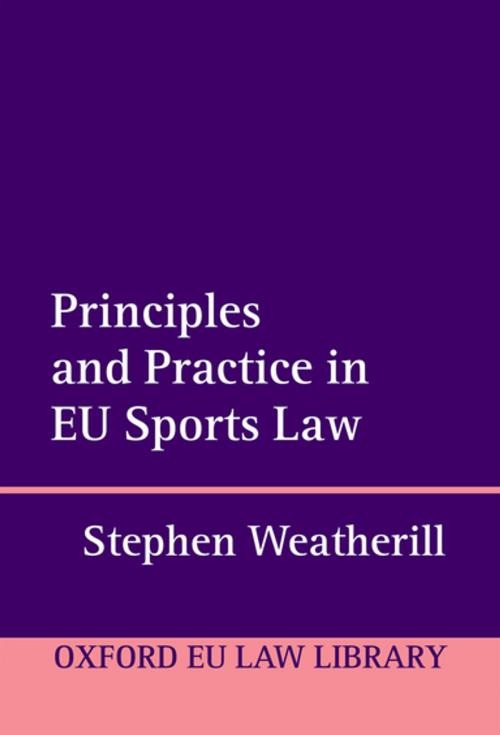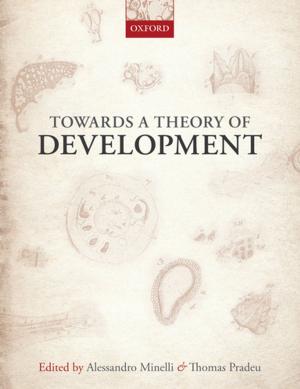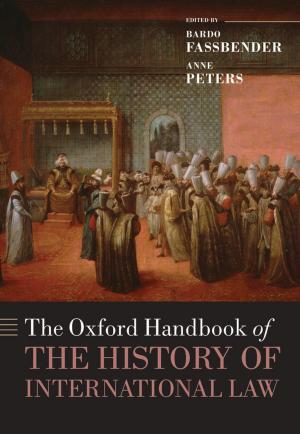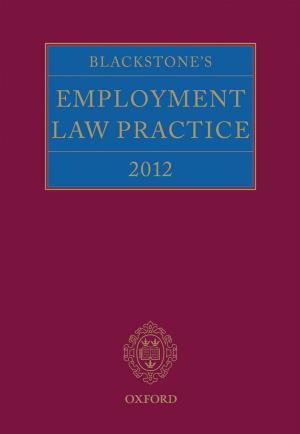Principles and Practice in EU Sports Law
Nonfiction, Reference & Language, Law, International, Social & Cultural Studies, Political Science, International Relations| Author: | Stephen Weatherill | ISBN: | 9780192512314 |
| Publisher: | OUP Oxford | Publication: | August 11, 2017 |
| Imprint: | OUP Oxford | Language: | English |
| Author: | Stephen Weatherill |
| ISBN: | 9780192512314 |
| Publisher: | OUP Oxford |
| Publication: | August 11, 2017 |
| Imprint: | OUP Oxford |
| Language: | English |
Principles & Practice in EU Sports Law provides an overview of EU Sports Law. In particular it assesses sporting bodies' claims for legal autonomy from the 'ordinary law' of states and international organisations. Sporting bodies insist on using their expertise to create a set of globally applicable rules which should not be deviated from irrespective of the territory on which they are applied. The application of the lex sportiva, which refers to the conventions that define a sport's operation, is analysed, as well as how this is used in claims for sporting autonomy. The lex sportiva may generate conflicts with a state or international institution such as the European Union, and the motives behind sporting bodies' claims in favour of the lex sportiva's autonomy may be motivated by concern to uphold its integrity or to preserve commercial gain. Stephen Weatherill's text underlines the tense relationship between lex sportiva and national and regional jurisdictions which is exemplified with specific focus on the EU. The development of EU sports law and its controversies are detailed, reinforced by the example of relevant legal principles in the context of the practice of sports law. The intellectual heart of the text endeavours to make a normative assessment of the strength of claims in favour of sporting autonomy, and the comparison between different jurisdictions and sports is evident. Furthermore the enduring dilemma facing sports lawyers running throughout the text is whether sport should be regarded as special, and in turn how (far) its special character should be granted legal recognition.
Principles & Practice in EU Sports Law provides an overview of EU Sports Law. In particular it assesses sporting bodies' claims for legal autonomy from the 'ordinary law' of states and international organisations. Sporting bodies insist on using their expertise to create a set of globally applicable rules which should not be deviated from irrespective of the territory on which they are applied. The application of the lex sportiva, which refers to the conventions that define a sport's operation, is analysed, as well as how this is used in claims for sporting autonomy. The lex sportiva may generate conflicts with a state or international institution such as the European Union, and the motives behind sporting bodies' claims in favour of the lex sportiva's autonomy may be motivated by concern to uphold its integrity or to preserve commercial gain. Stephen Weatherill's text underlines the tense relationship between lex sportiva and national and regional jurisdictions which is exemplified with specific focus on the EU. The development of EU sports law and its controversies are detailed, reinforced by the example of relevant legal principles in the context of the practice of sports law. The intellectual heart of the text endeavours to make a normative assessment of the strength of claims in favour of sporting autonomy, and the comparison between different jurisdictions and sports is evident. Furthermore the enduring dilemma facing sports lawyers running throughout the text is whether sport should be regarded as special, and in turn how (far) its special character should be granted legal recognition.















